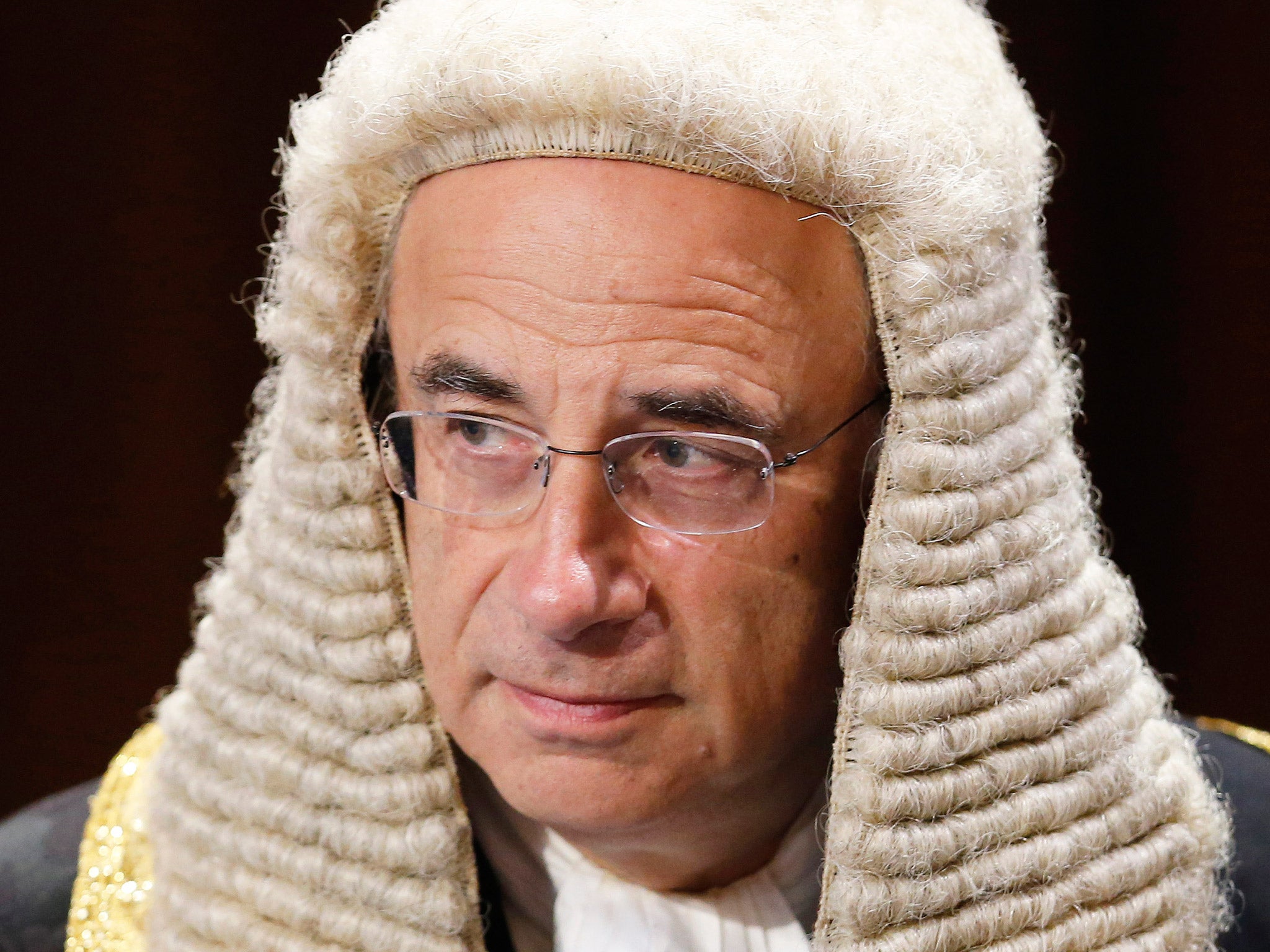Quota for female and ethnic minority judges would be 'demeaning,' says Lord Justice Leveson
Senior judge says quota system would create perception judicial appointments are 'not based on merit'

Your support helps us to tell the story
From reproductive rights to climate change to Big Tech, The Independent is on the ground when the story is developing. Whether it's investigating the financials of Elon Musk's pro-Trump PAC or producing our latest documentary, 'The A Word', which shines a light on the American women fighting for reproductive rights, we know how important it is to parse out the facts from the messaging.
At such a critical moment in US history, we need reporters on the ground. Your donation allows us to keep sending journalists to speak to both sides of the story.
The Independent is trusted by Americans across the entire political spectrum. And unlike many other quality news outlets, we choose not to lock Americans out of our reporting and analysis with paywalls. We believe quality journalism should be available to everyone, paid for by those who can afford it.
Your support makes all the difference.Attempts to boost the number of women and ethnic minority judges by using quotas would demean those concerned and go against the principle of appointing the best candidates, according to one of Britain’s most senior judges.
Lord Justice Leveson, the president of the Queen’s Bench Division, claims that quotas are the “antithesis of appointment on merit and demeaning whether to women or those from minority ethnic groups.”
During a lecture in the Isle of Man on ‘Justice for the 21st century’, which was published on Monday, he added: “Creating a principle of appointment not because of merit but in order to achieve gender or ethnic balance will inevitably lead to the inference that those appointments are most decidedly not based on merit alone.”
Just one member of the Supreme Court is female, and women only account for around one in five Court of Appeal and High Court judges. Yet while there has been “slow” progress towards equality and diversity, Lord Justice Leveson predicts that retirements will result in a “substantial number” of women judges appointed in the next five years. “Progress will also be made in the area where we do not do anything like as well, namely in relation to black and ethnic minority practitioners,” he said.
In a statement, a Law Society spokesperson commented: “We believe that targets can be an important part of a firm’s approach to equality and diversity and are a route that firms may wish to explore. They can help to break up the habit that positions are always distributed in the same circles. But it is important that targets are not confused with quotas and firms need to be clear that, irrespective of their targets, they appoint the most suitable people for the role, in accordance with the law.”
But quotas are needed to address gender inequality, according to a new study by the London School of Economics (LSE). It recommends that they be made mandatory for senior positions across private and public sectors in Britain to boost the number of women in high-level roles.
Professor Nicola Lacey, professor of law, gender and social policy at the LSE, told The Independent: “My colleagues and I recognise that quotas are controversial. But in the context of the failure of existing policies effectively to tackle the over-representation of men, particularly in the upper echelons of the legal profession, we believe that anyone seriously committed to the gender justice and equality must be prepared to consider a more radical approach.”
She added: “We firmly believe that, where properly handled and properly understood, quotas do not imply any disrespect for either sex, or indeed for particular ethnic groups.”